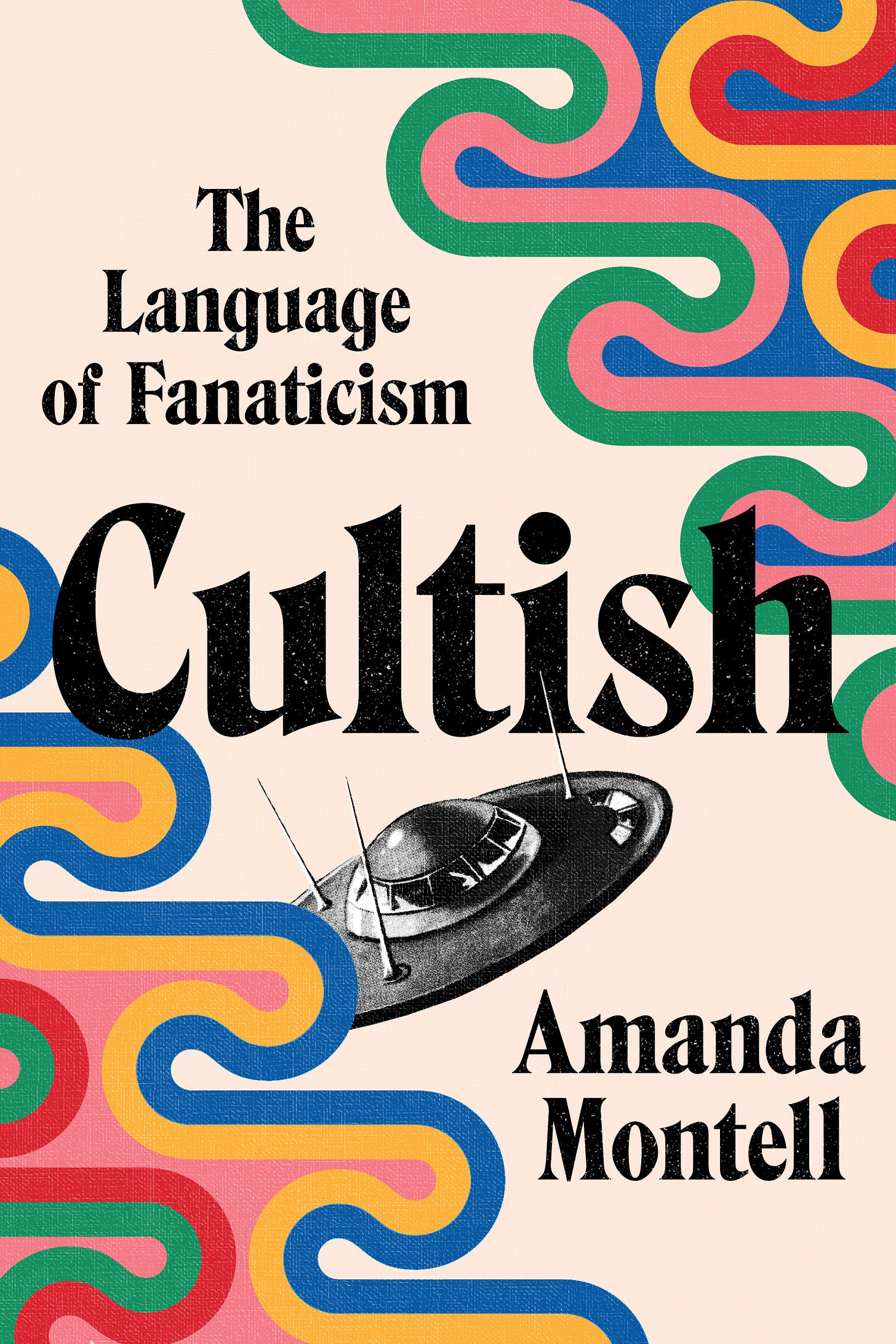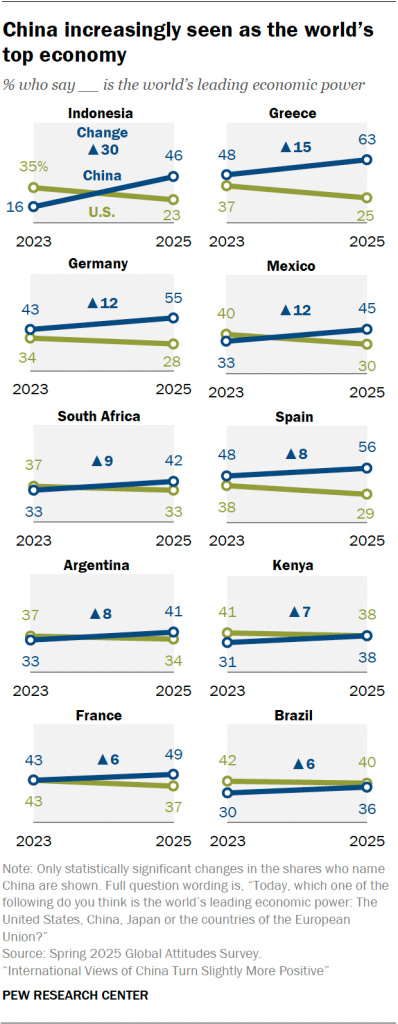The 272nd Block: Language and censorship
Where? or Where?
This week…
Your reading time is about 5 minutes. Let’s start.
Hey, I’m looking for the linguistic term for when the intonation of a word changes its meaning or intent. For example, if you tell your bestie, “I got bit by a dog at the spa,” your bestie may respond with, “Where?” In one intonation, she means where, on your body, did the dog bite you. In the other, she means to clarify if you really said the incident happened at a spa, because it doesn’t seem a very likely place for a dog to be. And for some reason, you know exactly which one she means depending on her intonation.
Let me know if you know. (It’s nothing serious, I’m just curious.)
Your Wikipedia this week: Wikipedia vandalism
And now, a selection of top stories on my radar, a few personal recommendations, and the chart of the week.
ICYMI: The Previous Block was about user data and the algorithm.
CORRECTION NOTICE: None notified. LOST IN TRANSLATION
Fed up with ChatGPT, Latin America is building its own
Author for Publication:
One morning in May, Juan Palma, a graphic designer in the Chilean capital of Santiago, asked ChatGPT for instructions on how to get from his home to a nearby subway station. Within seconds, the chatbot spat out a response — which sent Palma in the opposite direction.
ChatGPT, among the world’s most popular generative artificial-intelligence models, was out of its element in the South American nation, Palma realized. “I was surprised by the orientation error in ChatGPT’s response,” he told Rest of World. “I had different expectations for the accuracy of this tool.”
While large language models, including GPT and Meta’s Llama, are trained on a wide range of data in languages other than English, their capability in those languages remains limited, particularly in dialects and local idioms. To address these shortcomings — which have led to inaccuracies and hallucinations, or fabrications — a group of over 30 institutions across Latin America has spent the last two years developing Latam-GPT. The open-source LLM, which will be available to the public in September, is being trained by locals who take language and cultural nuances into account.
The Chile-led Latam-GPT project is “building AI in Latin America, for Latin Americans,” Héctor Bravo, lead of disruptive technologies at Sonda, a Chilean IT firm that is not involved in the project, told Rest of World. “It means redefining success metrics — not just accuracy or speed but cultural representation, social impact, and accessibility.”
Latam-GPT is being designed for deep multilingualism and includes Indigenous languages, such as Nahuatl, Quechua, and Mapudungun, as well as dialect variants, including some from the Caribbean, said Bravo.
Loosely linked:
Meta apologises after auto-translation mistakenly announces Indian state chief minister’s death by Amarachi Orie for CNN.
AI translation service launched for fiction writers and publishers prompts dismay among translators by Ella Creamer for The Guardian.
Translating impoliteness - literature review, translation challenges, and translation strategies in cross-cultural communication by Wei Yang, Syed Nurulakla Syed Abdullah, Lay Hoon Ang, and Mingxing Yang for Nature.
CENSORSHIP
Foreign journalists in the U.S. are self-censoring to protect themselves from the Trump administration
Angela Fu for Poynter:
In 2021, Venezuelan journalist Luz Mely Reyes moved to the United States because she didn’t want to be silenced. As an outspoken advocate for the freedom of expression, Reyes no longer felt safe in Venezuela, where reporters have been threatened, arrested and beaten.
Now in the U.S., however, she finds that she must often silence herself.
“In my country (Venezuela), I never self-censored. Here, I have to avoid some topics because I feel that it’s dangerous for my status,” said Reyes, who as a green card holder is a permanent legal resident of the U.S. but not a citizen.
As President Donald Trump and his administration have cracked down on immigration and free speech alike, some non-citizen journalists working in the U.S. have started to censor themselves, wiping their social media accounts and avoiding making statements that could be construed as criticism of the administration. They have delayed or canceled travel plans, fearful of being detained and deported — some to home countries hostile to the press. One journalist even reported removing their old bylines.
Those journalists’ fears are not unfounded. Last month, Salvadoran journalist Mario Guevara was arrested by local police while covering anti-Trump protests in Atlanta and then handed over to and detained by Immigration and Customs Enforcement. Guevara, who has lived in the United States for 21 years, is in the country legally, said Katherine Jacobsen, the U.S. program coordinator for the Committee to Protect Journalists.
Loosely linked:
Music industry faces censorship after Bob Vylan controversy by Stuart Braun for DW.
Diljit Dosanjh’s new film is a global success. Why can’t Indians watch it? by Yashraj Sharma for Al Jazeera.
New Russian law criminalises online searches for controversial content by Mary Ilyushina for WaPo.
Other curious links, including en español et français

LONG READ | The balancing act for Israeli Druze by Raslan Ibrahim for New Lines Magazine.
INFOGRAPHIC | 32 seconds to disaster: Final moments of Air India flight 171 by Vijdan Mohammad Kawoosa, Adolfo Arranz, Arathy J. Aluckal, and Han Huang for Reuters.
PHOTO ESSAY | Cambodia deploys rodents for life-saving mine detection operations by Anton L. Delgado for AP via Al Jazeera.
La gran filtración: la privacidad como munición política por Elsa Arnaiz en Retina.
Influencers ultras: así es como los mercenarios del algoritmo monetizan crisis de odio como la de Torre Pacheco por Carlos del Castillo en elDiario.es.
El resurgimiento del nazismo que Europa se resiste a reconocer por Andrés Gaudinen en Tiempo Argentino.
Arbres, noix, tout le monde sait... Ce vocabulaire détourné par des internautes pour diffuser des idées d'extrême droite sur les réseaux sociaux par Claire Guédon dans Franceinfo.
Une médecine ultra-personnalisée ou ultra-libérale est-elle encore une médecine ? par Xavier Pavie et Jean-Sébastien Diana dans Usbek & Rica.
La guerre reprend entre les sites porno et le gouvernement : une bataille perdue d’avance ? par Nicolas Lellouche dans Numerama.
What I read, listen, and watch
I’m reading Cultish (2021) by Amanda Montell about how language is used as a form of power in cults.
I’m listening to how the low-vision community embraced AI smart glasses on The Vergecast.
I’m watching filmmaker Dirk Laabs’ WORLD WHITE HATE about global network of rightwing extremists on DW.
Chart of the week
In many of 25 surveyed nations, people increasingly see China as the world’s top economic power, according to Pew Research Center. Read the report here.



